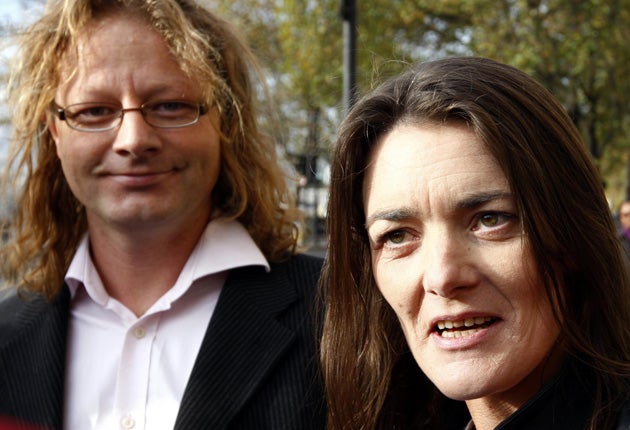Council illegally spied on family during row over catchment area

Your support helps us to tell the story
From reproductive rights to climate change to Big Tech, The Independent is on the ground when the story is developing. Whether it's investigating the financials of Elon Musk's pro-Trump PAC or producing our latest documentary, 'The A Word', which shines a light on the American women fighting for reproductive rights, we know how important it is to parse out the facts from the messaging.
At such a critical moment in US history, we need reporters on the ground. Your donation allows us to keep sending journalists to speak to both sides of the story.
The Independent is trusted by Americans across the entire political spectrum. And unlike many other quality news outlets, we choose not to lock Americans out of our reporting and analysis with paywalls. We believe quality journalism should be available to everyone, paid for by those who can afford it.
Your support makes all the difference.A family has won a landmark legal ruling that council officials acted illegally in spying on them to check they were living in the right school catchment area.
Jenny Paton, her partner Tim Joyce, and their three daughters, were placed under surveillance by Poole Borough Council for three weeks in 2008. Now the Investigatory Powers Tribunal – which deals with complaints against surveillance – has ruled the authority acted illegally.
The ruling could have massive implications for local authorities throughout the country following evidence that they have resorted to covert surveillance techniques on more than 8,500 occasions during the past two years. It was the first time tribunal surveillance powers granted to local authorities had been tested in an open hearing.
Ms Paton said yesterday: "Obviously, after two-and-a-half years of campaigning on this particular issue, I'm delighted and relieved that the tribunal has ruled that Poole acted unlawfully. I'm very pleased.
"It is not the end of the story, though, for us. It won't be until the coalition Government removes these powers from the local authorities.
"We don't believe council employees should have the same powers as international spies – and need to track members of the public filming them and photographing them."
A survey by the pressure group, Big Brother Watch, revealed the powers had also been used by councils to spy on their own employees.
In Darlington, County Durham, they checked up on their car parking, in Exeter, Devon, on their working times and in Hammersmith and Fulham, in London, on their sick pay claims. In Liverpool, they spied on wardens employed to spot crimes.
As far as the public were concerned, more than a dozen used the powers to catch pet owners whose dogs fouled the pavement and five used them to enforce smoking bans.
In Ms Paton's case, the surveillance included spying on the family home, trailing Ms Paton's young daughters and recording the family's movements. In the event, they found there was nothing untoward in Ms Paton's application for a school place for one of her daughters.
She only found out by accident during a meeting with council officials to discuss the application.
The council was criticised for using the surveillance without intending to gather evidence for a court prosecution. Even if it had found something untoward as a result, it would only have been used to send a threatening letter.
Corinna Ferguson, from the civil rights group Liberty, said: "Intrusive surveillance is vital to fighting terrorism and serious crime, but weak legal protections and petty abuses of power bring it into disrepute.
"Former ministers claimed the innocent had nothing to fear, but the sinister treatment of Jenny and her kids proves that these powers need to be far more tightly restricted and supervised."
Margaret Morrissey, of pressure group Parents Outloud, said what happened to Ms Paton and her family had been "a clear case of bullying and harassment and no amount of apology from Poole council is going to take away the distress this family was caused".
A spokesman for Poole Borough Council said: "The council accepts fully the ruling of the Investigatory Powers Tribunal and would like to apologise to Ms Paton and her family for any distress caused as a result of its actions in this case."
He added: "The council listened to public concerns about this case and subsequently decided that RIPA powers were no longer an appropriate means of investigating potentially fraudulent applications for school places."
The use of councils' powers is under review as part of the Government's counter-terrorism review. The coalition agreement stated the it would limit local authority use of them to "stopping serious crime" and only when approved by a magistrate.
Join our commenting forum
Join thought-provoking conversations, follow other Independent readers and see their replies
Comments